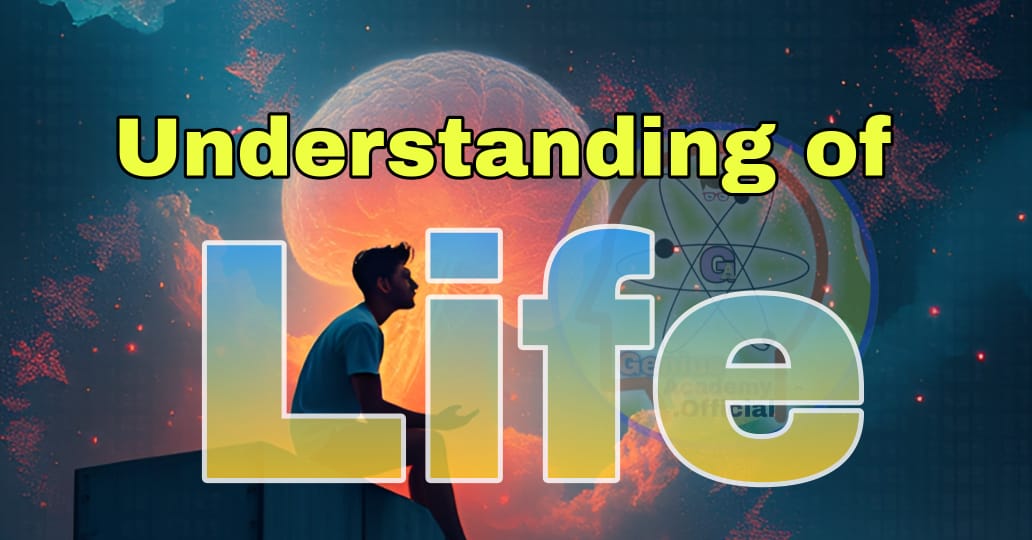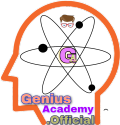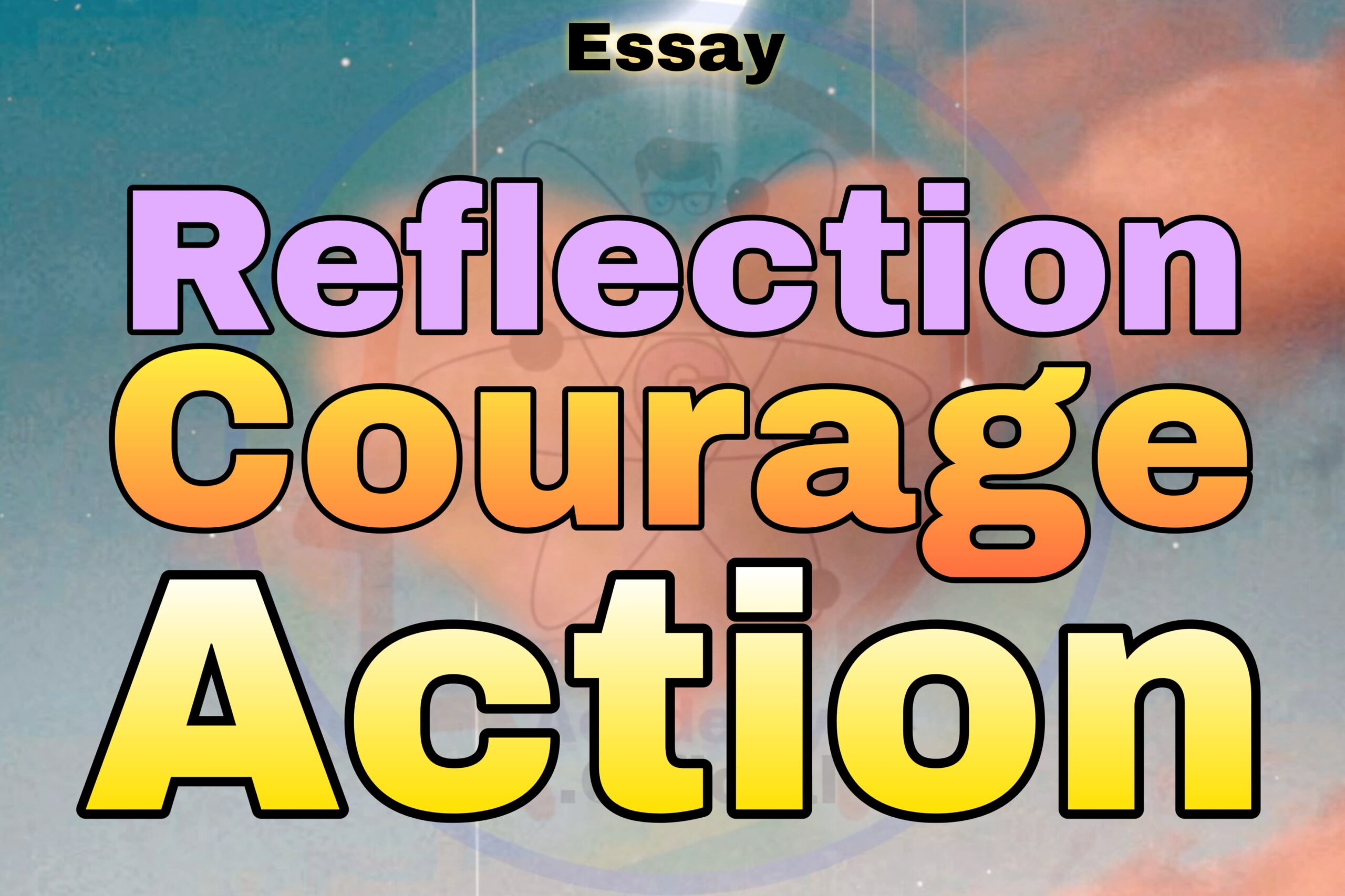
Essay: “Life Can Only Be Understood Backwards; But It Must Be Lived Forwards”
The Danish philosopher Soren Kierkegaard once observed, “Life can only be understood backwards; but it must be lived forwards.” This profound statement encapsulates a timeless truth about the human experience:— the insights we gain from the past illuminate our journey, yet we are continuously propelled into an unknown future, compelled to make choices without knowing their eventual outcomes. This paradox of understanding and action highlights both the wisdom gleaned from reflection and the courage required to navigate life’s uncertainties.
Understanding Life Through Retrospection
Retrospection, or looking back to analyze past events, is a fundamental tool for self-awareness and growth. It is only by reflecting on our experiences that we begin to see patterns, understand motivations, recognize our mistakes, and learn valuable lessons. When we look back on our lives, we can connect seemingly unrelated events, appreciating how specific choices or circumstances contributed to our current selves. This process reveals a broader perspective that is often invisible in the immediacy of the moment.
For instance, consider how one’s personal development is shaped by past hardships. Many individuals find that, when looking back, their most challenging experiences led to significant growth. In real-time, these difficulties may have felt insurmountable, and the lessons they imparted were unclear. But in hindsight, we often see that overcoming adversity taught us resilience, patience, or compassion. This form of retrospective understanding allows individuals to make sense of their pain, find meaning in their struggles, and appreciate how these experiences contributed to their character.
Similarly, in professional contexts, reflection allows people to understand their career trajectories and decisions better. Many professionals discover, in hindsight, that their career paths were far from linear. They may have taken unexpected turns or made difficult choices, but in the end, these experiences collectively prepared them for success. Retrospection, therefore, provides us with a unique lens to interpret our personal narratives, showing us how past experiences have shaped our present realities.
The Necessity of Forward Living
While retrospective understanding is valuable, S. Kierkegaard reminds us that life unfolds in the present, propelling us into the future. We do not have the luxury of living with complete foresight; instead, we are forced to make choices without the certainty of outcomes. This forward momentum necessitates courage, adaptability, and faith. Living forwards means accepting that the future is inherently unpredictable and that we must often act based on incomplete information.
This forward-living aspect of life highlights the importance of decision-making. Each choice we make is a step into the unknown, yet these decisions define our lives. Whether choosing a career, forming relationships, or pursuing personal goals, we act without knowing exactly where these choices will lead. Even with lessons from the past, every new choice involves a leap of faith. Life demands that we embrace this uncertainty, understanding that progress is only possible through action, not hesitation.
Moreover, living forwards emphasizes the importance of hope and optimism. If we were to be solely guided by retrospective understanding, we might be inclined to avoid risk or change, fearing failure or disappointment. However, living forwards requires an openness to new experiences and a belief that the future holds potential for growth and happiness. This mindset enables us to pursue dreams, create new possibilities, and remain resilient despite setbacks.
The Balance Between Reflection and Action
The real challenge lies in balancing reflection with action. If we rely too heavily on the past, we may become stuck in regret, nostalgia, or fear of repeating mistakes. Conversely, if we focus solely on the future without learning from our experiences, we risk repeating errors and overlooking valuable insights. The key, then, is to find a harmonious balance between understanding life backwards and living it forwards.
Reflection serves as a guiding compass, but it must not hinder us from moving forward. For instance, someone who has faced betrayal may be cautious about forming new relationships. However, they must balance this caution with the understanding that not all future relationships will mirror past ones. By using past lessons wisely, individuals can approach the future with both wisdom and openness, avoiding the paralysis that sometimes accompanies retrospection.
This balance also applies to society and collective experiences. History teaches valuable lessons about social progress, cultural evolution, and political dynamics. However, societies must use these lessons as a foundation for future growth, not as an excuse to avoid change. For example, while understanding past economic failures helps prevent future crises, it should not prevent a society from innovating or taking calculated risks to address new challenges.
The Role of Reflection in Personal Growth
Reflection on the past is essential for self-discovery. By examining our past choices, motivations, and reactions, we gain insights into our values, strengths, and areas for improvement. This self-knowledge forms the basis for personal development, enabling us to make informed decisions that align with our authentic selves. Without such introspection, we are likely to act reactively, influenced more by external circumstances than by internal purpose.
For example, a person who repeatedly experiences career dissatisfaction may, through reflection, identify underlying causes—perhaps a misalignment between their job roles and personal values. This understanding can inspire them to make proactive changes, such as exploring new fields or pursuing further education. Through this process of reflection, individuals can transform their lives in meaningful ways, guided by the lessons of the past rather than constrained by them.
Embracing Uncertainty and Living Forwards
While reflection helps us understand ourselves, living forwards requires us to embrace uncertainty. This mindset is crucial, as it allows individuals to be open to life’s unpredictability. Rather than trying to control or predict every outcome, living forwards encourages us to accept that not all variables are within our grasp. This acceptance fosters resilience and adaptability, enabling us to navigate life’s challenges without being overwhelmed by the need for certainty.
One clear illustration of this principle is seen in the creative process. Artists, writers, and innovators often embark on projects with only a vague sense of the final product. They experiment, adapt, and learn through the process itself. Similarly, in life, we often start ventures or make choices with limited information, refining our paths as we progress. This openness to experimentation enables growth, as each step forward offers new insights that contribute to our eventual understanding.
The Integration of Experience and Aspiration
S. Kierkegaard’s observation reminds us that life is a continuous integration of experience and aspiration. Our understanding of life is shaped by past experiences, yet it is our aspirations that drive us forward. By reconciling what we have learned with what we hope to achieve, we can make choices that honor both our personal histories and our future goals. This dynamic process enables us to live with purpose, grounded in our past yet propelled by our dreams.
For example, individuals who have experienced personal loss may carry that understanding forward into a compassionate career or a cause that benefits others. In doing so, they integrate the wisdom of the past with their aspirations for a meaningful life, finding purpose in what may once have been a source of pain. This integration creates a bridge between retrospective understanding and forward motion, allowing individuals to live fully and purposefully.
Conclusion
The essence of S. Kierkegaard’s insight lies in the recognition that life’s value is not solely in understanding or action but in the interplay between the two. We gain insight by looking back and seeing the broader picture of our lives, but our progress depends on moving forward, despite uncertainties. This balance requires both reflection and courage, as well as a willingness to embrace each moment for its unique possibilities. By honoring the lessons of the past without being constrained by them, we create a life that is both thoughtful and dynamic.
Ultimately, life’s journey is one of continuous growth, as each new experience adds depth to our understanding. Embracing S. Kierkegaard’s wisdom allows us to live with greater intention, learning from where we have been while courageously stepping toward where we wish to go. In doing so, we become the architects of our own lives, crafting a story that reflects both the wisdom of hindsight and the boldness of hope.

